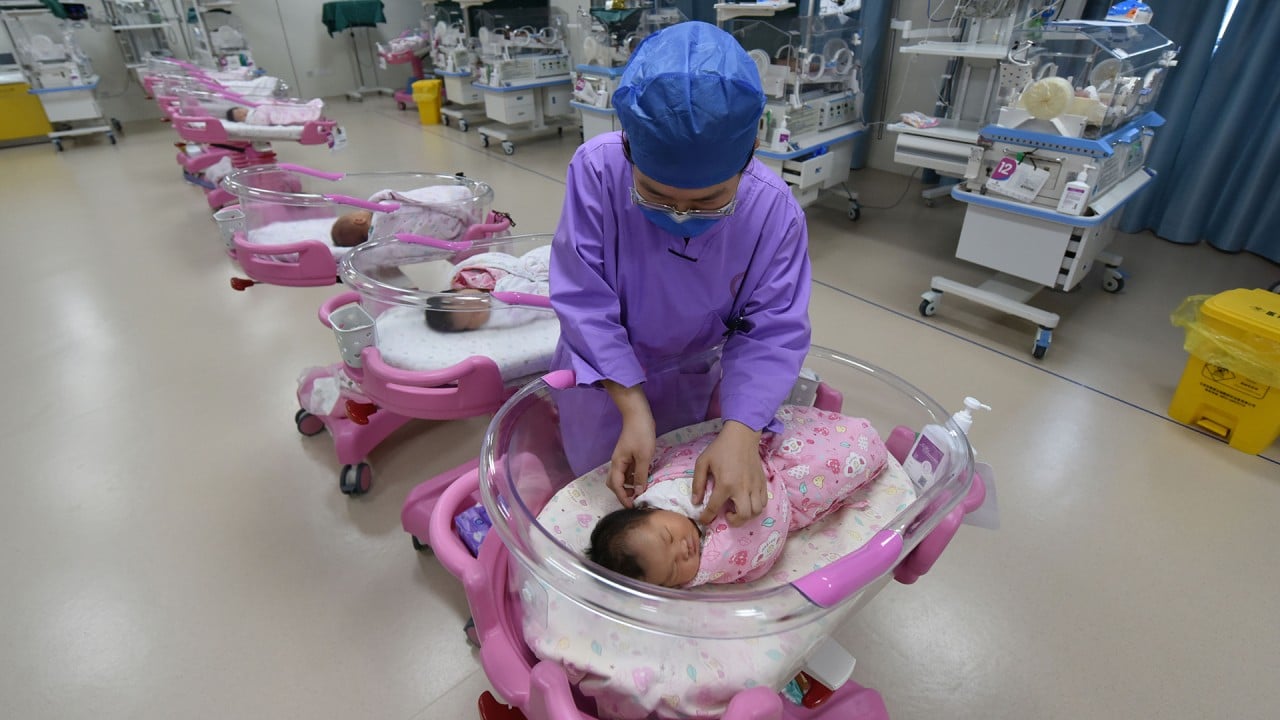
03:18
China reports first population decline in 6 decades, with birth rate at record low in 2022

Wanted: men aged between 20 and 40 years old, at least 1.7 metres (5.57 feet) tall, of clean habits, with no infectious or genetic diseases, and without major hair loss.
That was the call a Beijing-based non-profit sperm bank made on its social media account on Friday in its quest for donors to help couples conceive.
“The infertility rate of married couples in Beijing and Tianjin is as high as 15 per cent, and 40 per cent of them are due to sperm problems,” the sperm bank said.
It said couples needing sperm donations faced waits of up to two years and it encouraged university students to contribute in return for payments that could rise to around 5,000 yuan (US$732).
Applicants would have to submit to a health assessment and those who qualified would make 5-10 donations.
The sperm bank is one of a number across China – from Shandong to Yunnan, and Jiangxi to Hainan – appealing for donations as the country registers its first population decline in six decades and a record low birth rate.
In an offer posted online on Thursday, a sperm bank in Shaanxi province said donors could have free medical check-ups, including semen analysis, chromosome testing, and screening for genetic and infectious diseases.
A sperm bank in Shandong province said they could freeze and store samples of the donor’s sperm for 10 years, and those samples could be used free of charge when needed.
But only a minority of applicants make the donor cut, according to the Hubei-based Chutian Metropolis Daily.
The newspaper reported on Saturday that because the sperm needed to be stored at ultra-low temperatures, it had to meet high requirements and only 20 per cent of the volunteers made the grade.
“A qualified volunteer needs a sperm concentration three times that of the average male. Many men have a stressful life and most don’t qualify,” the report quoted a staff member at the sperm bank in Shaanxi as saying.
Research indicates that the semen quality of donors has fallen over the past several decades.
A study by Chinese researchers in 2016 found that semen quality among Chinese young men had declined over 15 years, especially in terms of sperm concentration, total sperm count, sperm progressive motility and normal morphology.
The study screened and analysed more than 70,000 samples from 30,636 healthy Chinese men from 2001 to 2015, the first time that the semen quality of a large population within the same laboratory in China had been examined over a long observation period.
The authors found that the rate of qualified donors fell from 55.78 per cent in 2001 to 17.8 per cent in 2015. The percentage of sperm with normal morphology decreased from 31.8 per cent to 10.8 per cent over the same time period.
The decline in semen quality may not just be a trend in China. An article published in the peer-reviewed journal Human Reproduction Update in 2022 observed a halving in human sperm counts over the past 50 years.
The researchers found that sperm counts fell by more than 1 per cent per year between 1973 and 2018, and the global average sperm count had fallen 52 per cent by 2018.
But the research is controversial, with some experts saying the data was limited.
Meanwhile officials in China are trying to find ways to boost the nation’s birth rate, with Yang Wenzhuang, director of the National Health Commission’s Department of Population Surveillance and Family Development, urging authorities to ramp up the introduction of policies to promote fertility.
But in the latest issue of a state-backed health magazine, Yang also noted that infertility and sperm quality were not the main reasons people were having fewer children.
“Financial burdens, child care and women’s concerns about career development are main constraints on fertility,” he said.